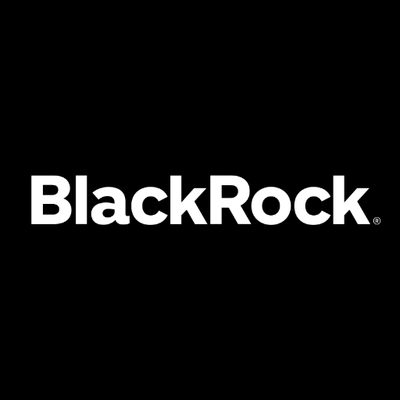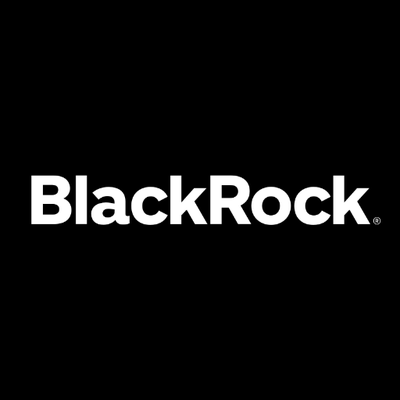All information is at 29 February 2020 and unaudited.
Performance at month end with net income reinvested
| One Month | Three Months | One Year | Three Years | Five Years | Since 1 April 2012 | |
| Sterling | ||||||
| Share price | -11.0% | -8.7% | -2.3% | 0.0% | 13.2% | 76.5% |
| Net asset value | -9.7% | -8.7% | -0.6% | 2.9% | 16.4% | 69.4% |
| FTSE All-Share Total Return | -8.9% | -8.9% | -1.4% | 4.7% | 19.1% | 64.0% |
Source: BlackRock
BlackRock took over the investment management of the Company with effect from 1 April 2012.
| At month end | |
| Sterling: | |
| Net asset value – capital only: | 183.37p |
| Net asset value – cum income*: | 185.34p |
| Share price: | 176.00p |
| Total assets (including income): | £46.3m |
| Discount to cum-income NAV: | 5.0% |
| Gearing: | 4.4% |
| Net yield**: | 4.1% |
| Ordinary shares in issue***: | 22,840,600 |
| Gearing range (as a % of net assets) | 0-20% |
| Ongoing charges****: | 1.1% |
* includes net revenue of 1.97 pence per share
** The Company’s yield based on dividends announced in the last 12 months as at the date of the release of this announcement is 4.1% and includes the 2019 final dividend of 4.60p per share declared on 24 December 2019 and due to be paid to shareholders on 19 March 2020, and the 2019 interim dividend of 2.60p per share declared on 25 June 2019 and paid to shareholders on 2 September 2019.
*** excludes 10,093,332 shares held in treasury
**** Calculated as a percentage of average net assets and using expenses, excluding performance fees and interest costs for the year ended 31 October 2019.
| Sector Analysis | Total assets (%) |
| Financial Services | 8.7 |
| Media | 7.9 |
| Pharmaceuticals & Biotechnology | 7.7 |
| Food Producers | 7.7 |
| Oil & Gas Producers | 7.6 |
| Support Services | 7.2 |
| Banks | 6.8 |
| Household Goods & Home Construction | 6.0 |
| Gas, Water & Multiutilities | 4.4 |
| Tobacco | 4.4 |
| Life Insurance | 4.4 |
| Mining | 4.4 |
| Travel & Leisure | 4.3 |
| Food & Drug Retailers | 3.8 |
| Health Care Equipment & Services | 2.9 |
| Mobile Telecommunications | 2.7 |
| Electronic & Electrical Equipment | 1.2 |
| Nonlife Insurance | 1.1 |
| Industrial Engineering | 0.8 |
| General Retailers | 0.6 |
| Construction & Materials | 0.6 |
| Beverages | 0.2 |
| Net Current Assets | 4.6 |
| —— | |
| Total | 100.0 |
| ====== | |
| Ten Largest Equity Investments | |
| Company | Total assets (%) |
| AstraZeneca | 5.7 |
| Royal Dutch Shell ‘B’ | 4.7 |
| RELX | 4.6 |
| National Grid | 4.4 |
| Unilever | 4.4 |
| British American Tobacco | 4.4 |
| BHP | 4.4 |
| Tesco | 3.8 |
| Associated British Foods | 3.3 |
| BP Group | 2.9 |
Commenting on the markets, Adam Avigdori and David Goldman representing the Investment Manager noted:
The coronavirus outbreak replaced trade deals as the main focus for the markets in February. Near-term negative effects on the Chinese economy and its impact on global growth, together with the expectation that central banks around the world will provide further monetary support, sent government bond yields lower throughout the month, with the US 10Y bond yield hitting a new all-time low of 1.1%. The Chinese manufacturing purchasing managers’ index (PMI), one of the first official economic indicators published since the coronavirus outbreak, fell to 35.7 in February, an all-time low and down from 50 in January. For the initial weeks of February, markets looked through concerns about the outbreak, supported by a better-than-expected Q4 US earnings season, improving business surveys in January and the expectation that the virus’ impact would be short-lived and contained. However, markets sold off sharply by the end of the month as the virus has spread across the globe. Emerging markets outperformed developed markets, and the S&P 500 saw its fastest 10% fall in a week ever.
China has stepped up its economic loosening with several supportive measures being announced, such as cutting the loan prime rate by 10bp, but it remains to be seen how quickly and sharply activity will recover. Whilst the Eurozone composite PMI rose to 51.6 in February, consistent with trend GDP growth, flash PMI details for February showed significant impact from the coronavirus virus. The economy is vulnerable to global supply chain disruptions though downside risks to growth need to be balanced with expectations for fiscal measures that are likely to be announced. Risk aversion has not been isolated to equities. Fears over the virus, global demand as well as stalling negotiations between Russia and OPEC on the implementation of further supply cuts saw the oil price fall another 13%, down 27% year-to-date.
In the UK, fiscal policy reached a critical inflection point with two developments: the approval of the roughly £100 billion HS2 and the resignation of Chancellor of the Exchequer, Sajid Javid. Rishi Sunak the new Chancellor delivered a budget that surpassed the Labour party’s after the financial crisis. Needless to say, this has been overshadowed since by news relating to the spread of the coronavirus. The FTSE All Share index fell -8.89% in February with Oil & Gas, Basic Materials, and Telecommunications as top underperformers.
Over the month, the Company returned -9.7%, underperforming the benchmark, the FTSE All-Share which returned -8.9%.
Premier Miton Group was the largest detractor to the Company. The stock saw price weakness, reacting to the weakness seen in the stock market, although we remain constructive on its recent merger supported by a strong balance sheet. AB Foods also detracted from performance on supply chain fears and virus contagion affecting footfall. This overwhelmed supportive full year results. Again, this remains a high quality, long term compounder in our view with market leading positions or products across its portfolio. Importantly, it also has net cash on its balance sheet, remains conservatively financed and can independently fund its own growth.
National Grid contributed to performance. Utilities stocks generally performed well in the market sell-off. Rentokil also contributed to performance after the company announced solid full-year results which demonstrated strong growth and cash generation with limited coronavirus impact.
We sold positions in Weir Group and Centrica. We reduced holdings in GlaxoSmithKline and HSBC. We added to positions in BHP Group, Unilever and AstraZeneca.
2019 proved to be a strong year for equity investors, with the FTSE All-Share returning 19%. The 2020 macro environment marks a big shift from the dynamics of 2019, when an unusual late-cycle dovish pivot by central banks helped offset the negative effect of rising trade tensions.
From a valuation perspective, we recognise that for the most part, valuations are high but not excessive, with trailing p/e of 19x, up from 15x a year ago. On a free cash flow basis, equity markets still look attractive, with the UK the stand-out at 6.3% and around a 30% discount to the MSCI World across a range of valuations.
For the UK economy, and the equity market, the picture looks better than it has done for a number of years. For the domestic-facing economy, the Conservative majority has brought more political certainty and indeed, although it is early days, we have seen signs of sentiment and investment returning following the election result. We expect this to continue.
We believe the UK’s economic climate has the potential to improve over the medium-term, supported by an expected increase in public sector spending. With the backdrop of ‘full’ employment, the recently announced increase to the national living wage suggests disposable income will continue to improve with underlying growth in nominal and real wages for the first time in recent years.
We are also conscious that Environmental, Social and Governance matters (“ESG”) are increasingly at the forefront of shareholders’ minds. We have always looked to our companies to operate within a healthy ecosystem of all their stakeholders whether these are shareholders, employees, customers, regulators or suppliers. It is our belief that a company’s ‘ecosystem’ is crucial to ensuring the sustainability of long-term returns.
For those who have been following our strategy, we continue to employ a bottom-up approach rather than focusing on a specific macro outcome. We believe in identifying franchises across the UK market which can sustain their competitive advantages over the long term, supporting strong and consistent cash generation. Hence, we will continue to focus the portfolio on stock specific risk where our resources and long-term analysis is best able to deliver capital and income growth over the long-term for shareholders.
It is certain that coronavirus will have some impact on the global economy, but as the extent of the virus is as yet unknown, it is impossible to quantify its severity and duration. We believe our focus on the stock specifics with a bias towards strong balance sheets will provide support for the portfolio in difficult times. We reduced the gearing in the portfolio significantly during January and the early part of February. Hence, we believe we enter this period well positioned and, as always, we will look to take advantage in shares we like where prices have fallen to levels we find attractive, so that the Company emerges from this period in a stronger position.





































